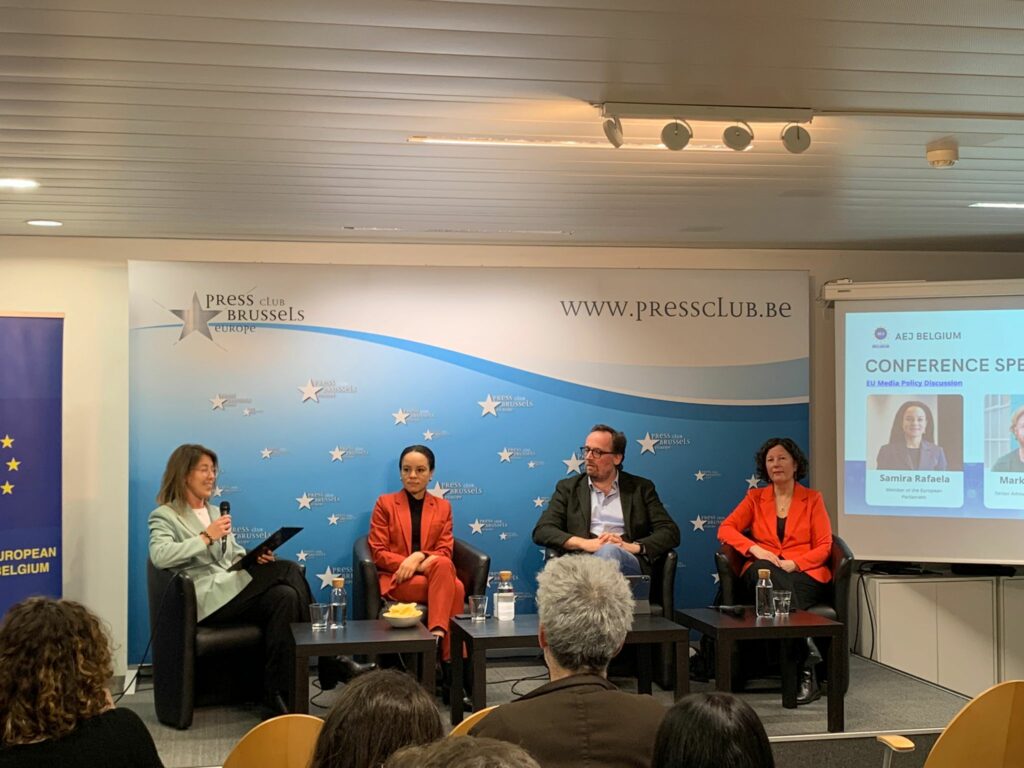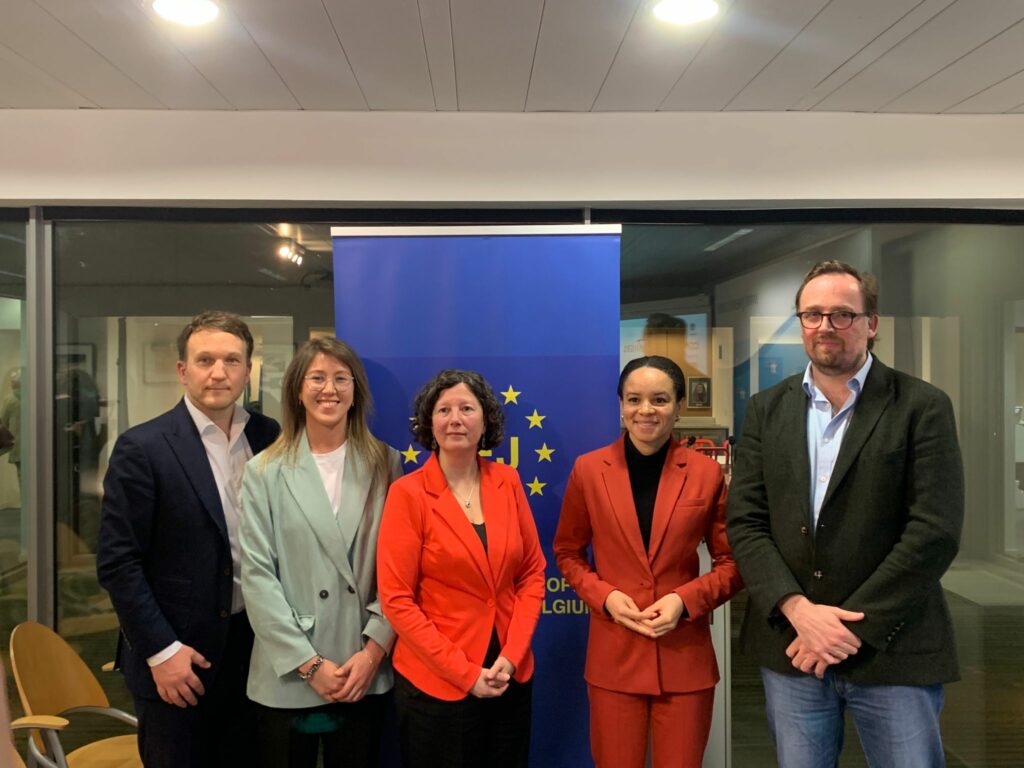By Miquel Sánchez
In an era marked by digital transformation and escalating challenges to democracy, the Association of European Journalists in Belgium (AEJ Belgium) organised a pivotal roundtable discussion at the Press Club Brussels on Wednesday 27 March.
The event brought together a distinguished panel with speakers specialised in media, politics, and technology to chart the course of EU media policy in the face of rapid technological advancements and complex geopolitical landscapes.

A critical starting point was the issue of cybersecurity, with Dutch MEP Samira Rafaela (Renew Europe) shedding light on the European Union’s legislative measures to address these challenges, emphasizing the critical roles of the AI Act, Digital Services Act, and the Digital Markets Act.
“Our legislative efforts aim to safeguard platform users and ensure fair competition, pivotal for upholding the rule of law and transparency in the use of data and algorithms,” Rafaela said, pointing out the significance of these frameworks in positioning the EU on the global stage.
Journalism, democracy, and Big Tech
Mark Dempsey, senior advocacy officer at NGO Article 19, delved into the evolving landscape of journalism, shaped by the forces of big tech and market regulation.
Citing journalist Simon Kuper’s poignant remark, “no news is bad news,” Dempsey reflected on the transformative decade for journalism and posed the critical question of its future direction in these tumultuous times.
The founder and executive director of the organisation Defend Democracy, Alice Stollmeyer, noted the essential role of the media in bolstering democratic values.
With her roots deeply embedded in the advocacy for democracy, Stollmeyer described the initiative ‘Act on Disinfo’ that her organisation has developed to champion the cause against propaganda and misinformation, advocating for responsible journalism.
“No lies in headlines,” she warned, calling for a united front against the malpractices of targeted advertising and big tech’s overreach.
Envisioning the future
The speakers collectively emphasized the importance of implementation and monitoring of the existing legislations, advocating for a proactive approach towards safeguarding human rights and fostering ethical technological advancements.
“Regulation will always lag behind technological innovation,” Stollmeyer remarked, highlighting the urgency for ethical technology designs.
Additionally, Samira Rafaela noted that “the most important thing is to mainstream human rights (…), as only regulating AI will not be enough,” she remarked.
Meanwhile, during the Q&A session, people from the audience raised concerns about some of the challenges facing the industry and the difficult interlinkage between media pluralism and editorial independence, under political and financial pressure.

